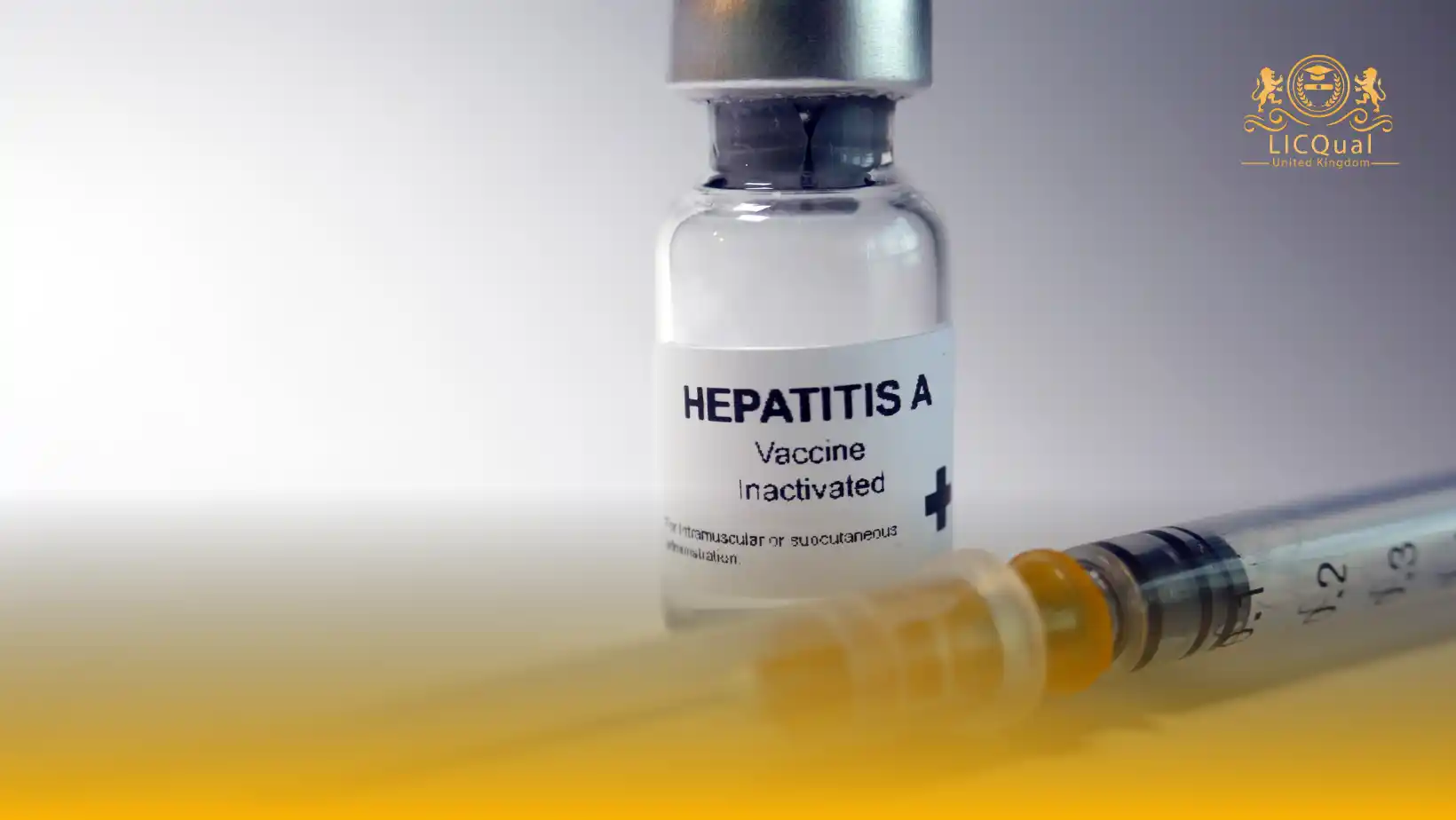The LICQual Level 6 Diploma in Oral Medicine (Dip Oral Medicine) is a specialised qualification designed for dental professionals seeking to advance their expertise in the diagnosis, management, and treatment of oral diseases. This Level 6 diploma is not intended for fresh entrants to the dental profession but is tailored for experienced practitioners who wish to enhance their clinical skills, broaden their knowledge, and strengthen their career prospects.
Learners undertaking this qualification will gain a comprehensive understanding of oral medicine principles, including the assessment and management of complex oral conditions, systemic disease interactions, and patient-centred care. The programme combines in-depth theoretical knowledge with practical, evidence-based training, ensuring learners develop the critical skills required to provide accurate diagnosis, effective treatment planning, and high-quality patient care. Additionally, the course supports Continuing Professional Development (CPD), enabling learners to maintain up-to-date expertise and achieve excellence in oral medicine.
Centres delivering the LICQual Level 6 Diploma in Oral Medicine are required to maintain the highest standards to ensure learner success. This includes employing competent and qualified staff, providing access to well-equipped clinical environments, and ensuring all necessary materials, diagnostic tools, and resources are available for practical training. Such measures guarantee a high-quality, engaging educational experience that enables learners to confidently apply their knowledge and skills in real-world clinical settings.
Whether you aim to specialise in the management of complex oral conditions, enhance patient outcomes, or strengthen your professional credentials, this diploma offers a structured pathway for ambitious dental professionals committed to excellence in oral medicine.
Course Overview
Qualification Title
LICQual Level 6 Diploma in Oral Medicine (Dip Oral Medicine)
Total Units
6
Total Credits
120
GLH
480
Qualification #
LICQ2200681
Qualification Specification
To enroll in the LICQual Level 6 Diploma in Oral Medicine (Dip Oral Medicine), applicants must meet the following criteria:
|
Qualification# |
Unit Title |
Credits |
GLH |
|---|---|---|---|
|
LICQ2200681-1 |
Foundations of Oral Medicine |
20 |
80 |
|
LICQ2200681-2 |
Diagnosis and Clinical Assessment |
20 |
80 |
|
LICQ2200681-3 |
Oral Medicine in Special Populations |
20 |
80 |
|
LICQ2200681-4 |
Therapeutics in Oral Medicine |
20 |
80 |
|
LICQ2200681-5 |
Advanced Oral Pathology |
20 |
80 |
|
LICQ2200681-6 |
Research, Evidence-Based Practice and Professional Development |
20 |
80 |
By the end of this course, learners will be able to:
Unit 1: Foundations of Oral Medicine
- Demonstrate a comprehensive understanding of oral anatomy, physiology, and pathology.
- Analyse the pathogenesis of common oral diseases and their systemic relationships.
- Evaluate the role of oral microbiology in disease development.
- Apply theoretical knowledge to assess the impact of systemic conditions on oral health.
Unit 2: Diagnosis and Clinical Assessment
- Demonstrate expertise in patient history taking and clinical examination techniques.
- Analyse radiographs and laboratory investigations for accurate diagnosis.
- Evaluate differential diagnoses for complex oral conditions.
- Apply evidence-based strategies in clinical decision-making.
Unit 3: Oral Medicine in Special Populations
- Demonstrate the ability to assess and manage oral conditions in pediatric, geriatric, and medically complex patients.
- Analyse ethical, cultural, and communication considerations in patient care.
- Evaluate the risks and benefits of treatment plans for diverse populations.
- Apply adapted clinical approaches to meet the specific needs of special populations.
Unit 4: Therapeutics in Oral Medicine
- Demonstrate knowledge of pharmacological principles in oral disease management.
- Analyse treatment options including pain management and antimicrobial therapy.
- Evaluate the safe and effective use of medical devices in oral treatment.
- Apply evidence-based therapeutic strategies in individualized patient care.
Unit 5: Advanced Oral Pathology
- Demonstrate the ability to identify and classify oral lesions, neoplasms, and mucosal disorders.
- Analyse histopathological findings and biopsy results for diagnostic accuracy.
- Evaluate oral manifestations of systemic diseases in clinical practice.
- Apply advanced pathology knowledge to support clinical decision-making.
Unit 6: Research, Evidence-Based Practice and Professional Development
- Demonstrate competence in designing and conducting research relevant to oral medicine.
- Analyse scientific literature to critically appraise evidence for clinical practice.
- Evaluate and apply evidence-based principles in treatment planning and patient care.
- Apply reflective practice to support professional development and lifelong learning.
The LICQual Level 6 Diploma in Oral Medicine (Dip Oral Medicine) is designed for dental professionals and healthcare practitioners who want to specialize in diagnosing and managing oral diseases. This Oral Medicine Level 6 diploma is ideal for those who want to improve their clinical knowledge, strengthen their career profile, and gain an internationally recognized qualification. It is suitable for dentists, graduates, academics, and international professionals who want to advance in this important field.
1. Practicing dentists seeking oral medicine expertise
- Dentists who want to specialize in oral disease diagnosis and treatment
- Professionals aiming to expand services for complex oral conditions
- Those interested in earning a recognized Dip Oral Medicine qualification
- Practitioners focusing on oral mucosal disorders and systemic links
- Dentists looking to build stronger patient trust through advanced care
2. Recent dental graduates
- Graduates who want to specialize early in Oral Medicine
- Students seeking a postgraduate diploma to boost their career
- Young dentists aiming to stand out in a competitive job market
- Learners looking for flexible online Oral Medicine courses
- Professionals aiming for international recognition
3. International dental professionals
- Dentists from Pakistan, UK, Middle East, and other regions
- Professionals seeking a globally accredited Oral Medicine diploma
- Those who prefer flexible online study options
- Practitioners aiming to meet international oral medicine standards
- Dentists looking to expand career opportunities abroad
4. Dental specialists expanding skills
- Prosthodontists, orthodontists, and endodontists adding oral medicine knowledge
- Specialists aiming to broaden diagnostic and treatment abilities
- Professionals seeking continuing professional development (CPD)
- Those who want to integrate oral medicine into their practice
- Dentists pursuing multi‑disciplinary collaboration
5. Academic and teaching professionals
- Dental educators seeking updated oral medicine knowledge
- Academics aiming to strengthen teaching credentials
- Trainers who want to mentor future oral medicine specialists
- Researchers looking for recognized qualifications
- Educators seeking evidence‑based oral medicine training
6. Healthcare professionals in diagnostic care
- Physicians and allied health staff interested in oral disease diagnosis
- Community health workers supporting oral healthcare programs
- Professionals collaborating with oral medicine specialists
- Practitioners working in oral pathology and systemic disease management
- Those seeking interdisciplinary healthcare knowledge
7. Career‑focused dental practitioners
- Dentists aiming for career advancement in Oral Medicine
- Professionals looking to increase recognition and credibility
- Practitioners seeking higher earning potential through specialization
- Dentists preparing for leadership roles in clinics and institutions
- Professionals committed to lifelong learning and excellence
- Qualified and Competent Staff
Employ experienced and appropriately qualified dental educators with expertise in oral medicine, diagnosis, therapeutics, and clinical decision-making. - Clinical and Laboratory Facilities
Provide fully equipped clinical areas and laboratories to allow learners to safely conduct oral examinations, diagnostic procedures, and sample analysis. - Access to Required Materials and Equipment
Ensure availability of all necessary diagnostic tools, medical devices, laboratory equipment, protective gear, and learning resources to support hands-on training. - Teaching and Learning Resources
Provide access to up-to-date textbooks, journals, digital platforms, and research materials to support theoretical learning and evidence-based practice. - Compliance with Health and Safety Standards
Adhere to all relevant infection control, patient safety, and clinical governance regulations to maintain a safe and professional learning environment. - Assessment and Quality Assurance
Implement robust systems to monitor learner progress, conduct assessments, and maintain quality assurance in line with international standards. - Support for Learners’ Continuing Professional Development (CPD)
Encourage and facilitate ongoing professional development, enabling learners to apply new knowledge and skills effectively in clinical practice.
Assessment and Verification
All units within this qualification are subject to internal assessment by the approved centre and external verification by LICQual. The qualification follows a criterion-referenced assessment approach, ensuring that learners meet all specified learning outcomes.
To achieve a ‘Pass’ in any unit, learners must provide valid, sufficient, and authentic evidence demonstrating their attainment of all learning outcomes and compliance with the prescribed assessment criteria. The Assessor is responsible for evaluating the evidence and determining whether the learner has successfully met the required standards.
Assessors must maintain a clear and comprehensive audit trail, documenting the basis for their assessment decisions to ensure transparency, consistency, and compliance with quality assurance requirements.







